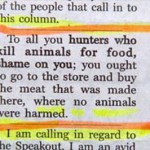hunter
African wild dogs (Lycaon pictus), photographed at the Bronx Zoo.
African wild dogs (Lycaon pictus) don't have it easy. Their taste for large mammalian prey puts them in competition with lions and spotted hyenas for both prey and living space, meaning that wild dogs regularly have their kills stolen or are even killed by other predators. In fact, the dogs may even be unintentionally attracting the attention of these other hunters.
Like other social carnivores, African wild dogs communicate with each other through body language and olfactory cues, but they also employ a variety of high-…
A leopard (Panthera pardus). Image from Wikipedia.
SK-54 is a curious fossil. The 1.5 million year old skullcap represents a juvenile Paranthropus robustus, one of the heavy-jawed hominins which lived in prehistoric South Africa, but there is something that makes this skull fragment particularly special. Near one of the sutures along the back of the skull are two neat puncture marks, the hallmark of a leopard.
Even though it was initially proposed that SK-54 had been murdered by another australopithecine wielding a weapon of bone or horn, in the late 1960's the paleontologist C.K. Brain…
From Failblog.
(I dedicate this to Hungry Hyaena, who holds extremely nuanced views on the ethics of hunting, and would no doubt have an easier time if he embraced complete denial, like this poor person).
They just don't write spine tinglers about killer pandas like they used to. Check out Heroic Comics #35, Facing Death in a Panda's Mouth, in its entirety below the fold.
Thank god they shot that panda. I thought they were goners! Via judgeabook.
After many false starts I've actually started to write my "treatise" on evolution, some of the pages I've been turning out being in note form (I want to get the ideas down and then fill in the exact details later when I can pick up the proper reference books from the shelf) while others resemble actual passages and are in a near-finished form. My work isn't going to be a chronological overview of the history of life like many other books, but will instead take a more personal approach reflecting how I've come to understand evolution and how it proceeds. Differing rates of change, convergence…
